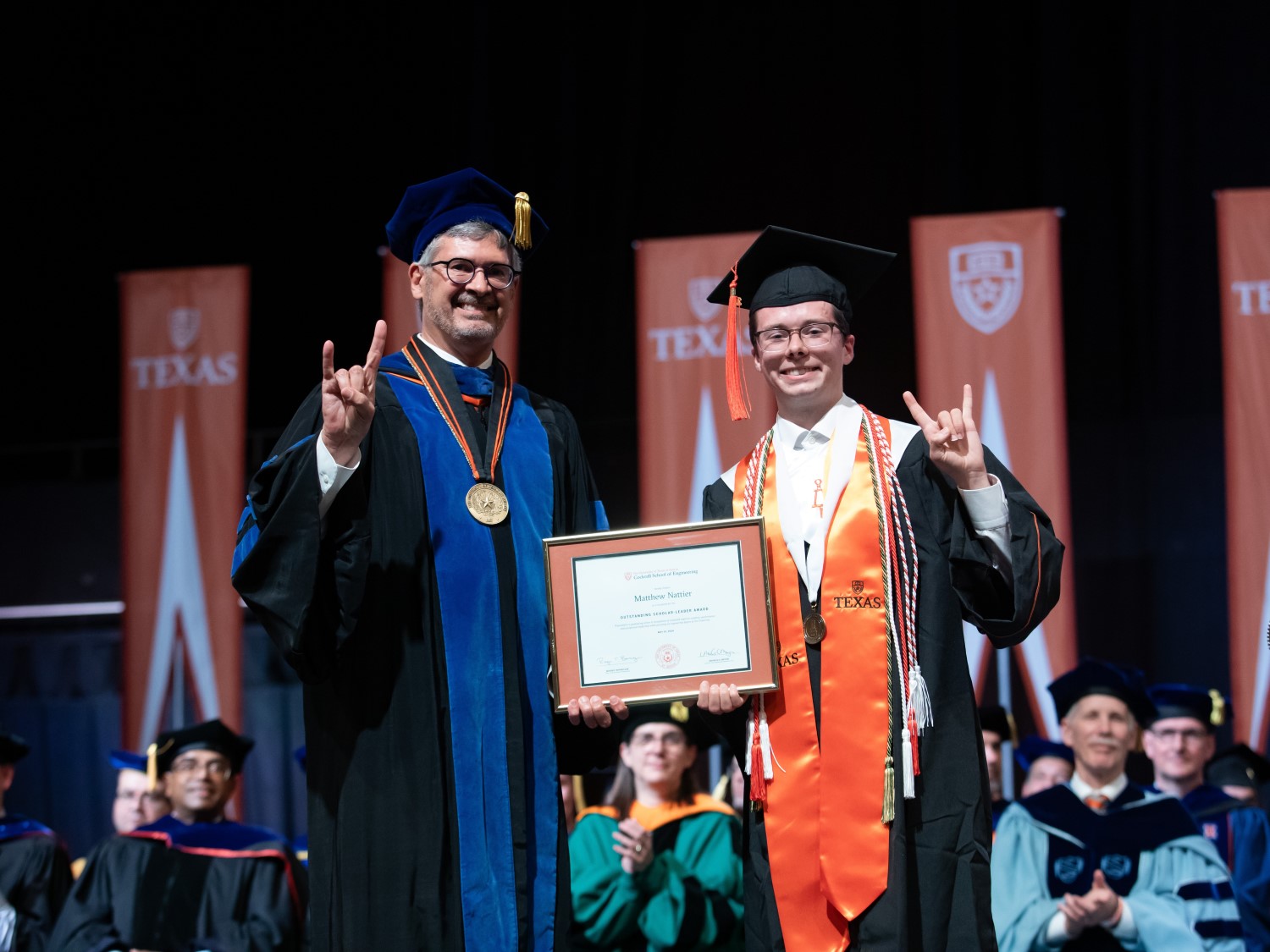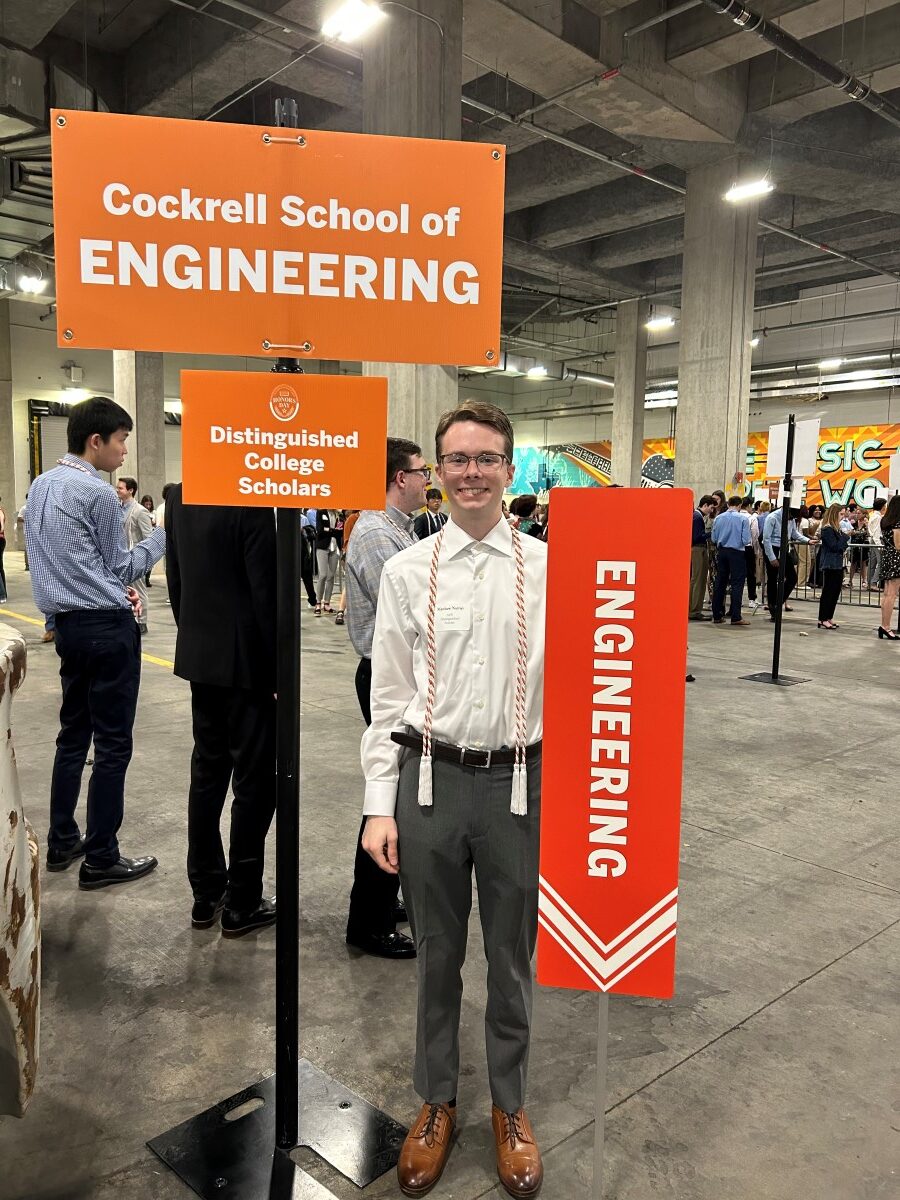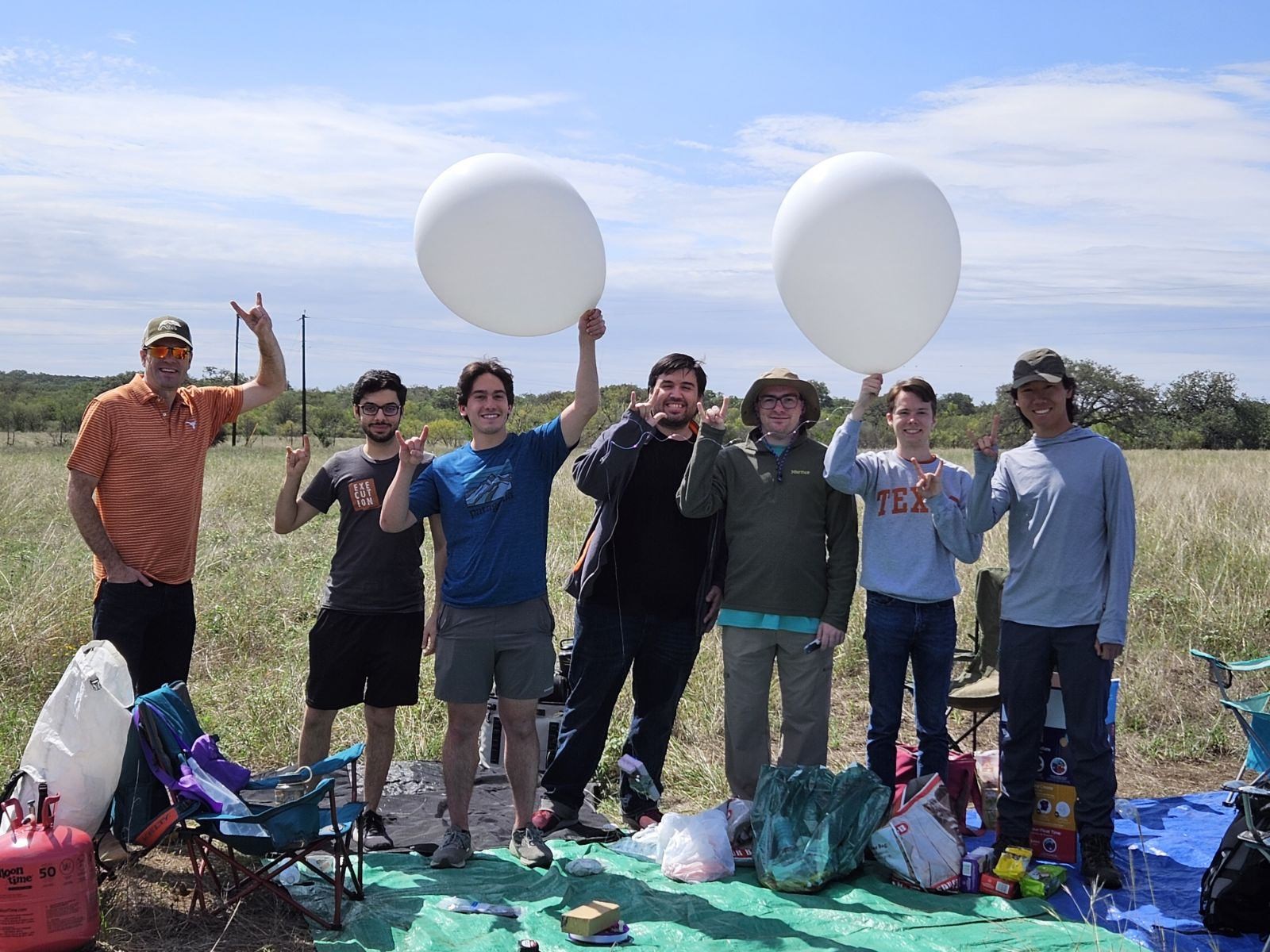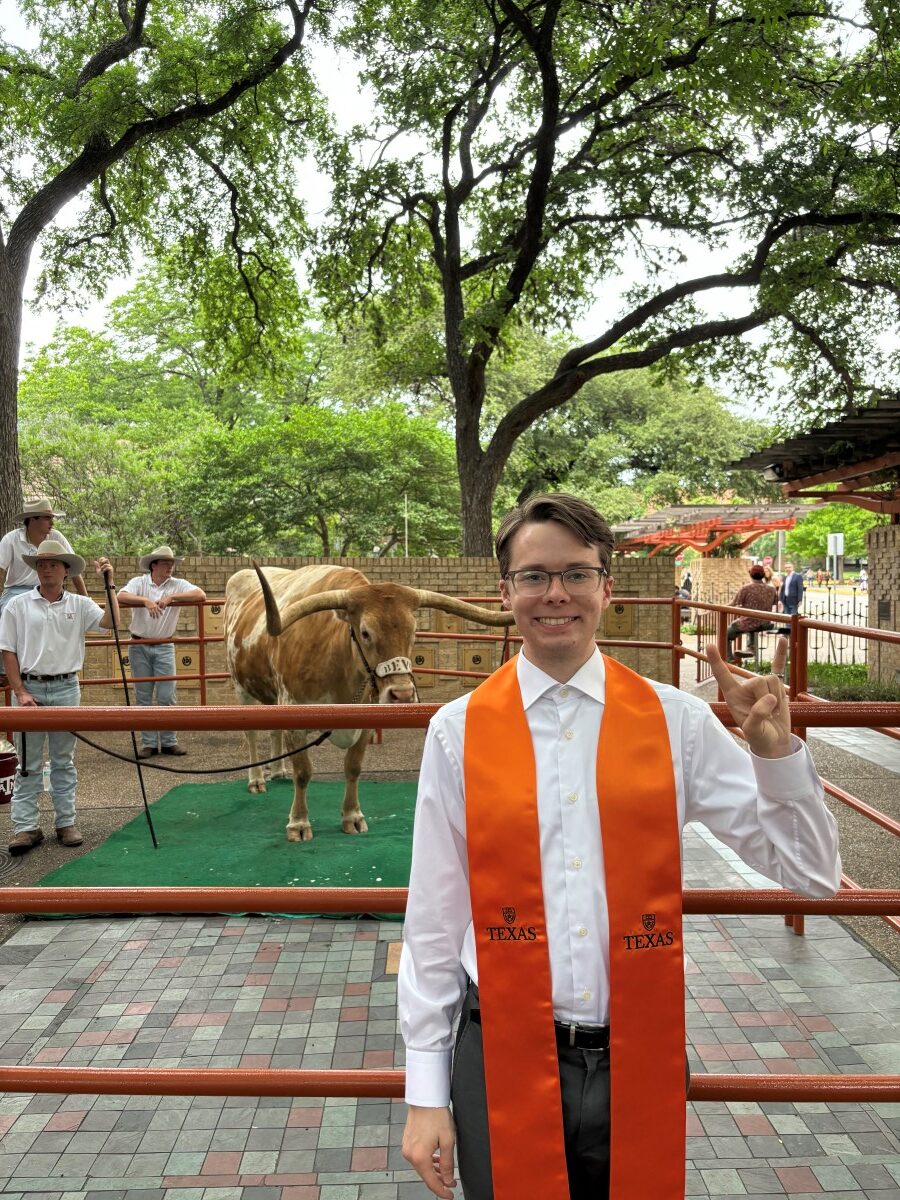
Matthew Nattier hit the ground running at UT.
After starting his Longhorn career virtually in the challenging time of Fall 2020, he quickly became involved in helping future students feel comfortable in their initial years, serving as an orientation advisor. He continued to grow throughout his academic career, getting involved in student organizations and research projects.
Nattier just completed his aerospace engineering degree with a special honor – he was named the Cockrell School’s Outstanding Scholar-Leader for the class of 2024. He also earned a certificate in computational science and engineering and a minor in computational geosciences.
Every year, the Cockrell School selects an Outstanding Scholar-Leader from among the senior class, recognizing a candidate whose hard work and dedication, both in and out of the classroom, exemplify leadership and inspire our community. The student must have completed at least 60 credit hours at UT Austin and maintained at least a 3.8 in-residence GPA.

Nattier was lauded by his nominators – Director of the Center for Space Research Lori Magruder, Assistant Director of Academic Advising Mckinlaye Harkavy and Academic Advising Coordinator Renee Babcock – for his ability to juggle multiple commitments in addition to his academic load and research.
“To me, one of the most amazing qualities that Matthew possesses is his ability to be incredibly involved on campus, and simultaneously make time for others; he has the innate ability to connect with anyone,” Harkavy wrote in her nomination letter for the award. “Being involved in research, serving as an orientation advisor for two years, holding an on-campus job in ESS, and maintaining an honors-level GPA in aerospace engineering are all impressive, but the fact that Matthew is able to make time to be involved with his peers is even more remarkable. He is charismatic, intelligent, and a truly genuine individual, and I believe that while serving in his various leadership capacities, his research experiences and his internships, he is able to use those qualities to better every individual with whom he interacts.”
Why did you choose to study aerospace engineering at UT?
I always enjoyed math and science in high school, and that made me interested in engineering. Around my sophomore and junior year of high school, I had a few experiences that really got me interested in aerospace. First, I participated in a NASA program for high school students in Houston. In this program, I learned a lot about what aerospace engineers do and got to tour Johnson Space Center. Second, I lived through Hurricane Harvey and saw how aerospace engineering can really help people. Several people in my neighborhood with drones could fly things like medicine to those trapped in their houses, and satellite data helped coordinate the relief effort. I think a combination of these experiences really showed me that aerospace engineering can be both fun and make a big impact in helping people.
As for UT, the decision was pretty easy. I was already interested in UT, and I knew it had one of the best aerospace programs in the country. When I toured campus for the first time, I really liked how friendly everyone was and how many student organizations there were. I felt like I could explore a wide range of interests and meet great people while doing it, which has been my experience since coming here.

Which of your many accomplishments here has meant the most to you and why?
It is hard to pick which of my experiences has meant the most to me, but if I have to pick one, I would say my senior design project. During the October 2023 and April 2024 eclipses, I worked with a team of other students to launch weather balloons to contribute data to a nationwide study. Getting to see two eclipses in one year is really a once in a lifetime experience, and I got to experience them with a really awesome group of people.
I think this experience meant a lot to me because I really got to see how things we learn in class work in real life. There were a lot of problems we had to solve using our own judgement as engineers, and that helped me gain confidence to do real engineering work. It was also impactful to me because I really like geology, and this project gave me an opportunity to explore more of the scientific side of aerospace projects. I was taking some geology classes at the same time as this project, so it was cool to talk to my professors about it and learn how to work with the data we collected.
What was the trick to successfully balancing your busy schedule of academics, research, and extracurricular activities?

It was definitely a lot of work to balance everything. I had to learn good time management skills and how to plan my schedule. At the start of each semester, I would add all my exams and important dates to my calendar, which helped me keep up with my classes and clubs. I usually tried to break up tasks into smaller pieces every day, which also helped prevent me from getting caught up with too many things to do at the same time.
Whenever it was possible, I tried to combine things that I was working on. For example, if I had to write a paper for a class, I would try to focus it on things relevant to research projects I was working on, which helped me learn more about those projects. I think overall keeping a calendar/planner in a way that works for me was one of the most important skills I learned to balance everything.
What’s next for you and how did your time at UT Aerospace prepare you for it?
I’m looking forward to starting a full-time position at York Space Systems in Austin this June! I interned there in the summer of my junior year and had a great experience, so I’m excited to go back full time.
UT Aerospace prepared me for this job in a few ways. A lot of my job involves working with software for satellites. Before coming to UT, I had no experience with programming, so my classes really taught me most of what I know now. My senior design class also taught me a lot about the aerospace industry as a whole, especially how projects are managed. I think the time I spent in aerospace research labs like Texas Spacecraft Laboratory (TSL) also really helped me. Since York does a lot of work with small satellites, the hands-on experience I had from TSL really helped me learn the basics of satellite engineering projects.
What advice do you have for incoming students?
My biggest advice to incoming students is to get involved at UT! One of my first major experiences at UT was working as an orientation advisor, which really helped me learn more about the university. To this day, many of my closest friends are people I worked with as an advisor. Being involved in different clubs and jobs on campus gave me a support system of friends and mentors that have helped me in countless ways. I would recommend trying out a few different clubs until you find one that’s right for you.
I would also recommend talking to your professors, especially if you are unsure what you want to do once you graduate. I remember during my junior year I was still a bit unsure about what particular part of aerospace I was interested in, so I reached out to a professor from a class I enjoyed. Talking to her gave me a much better idea of what kinds of projects are out there and helped me start focusing on things that were relevant to what I wanted to do.
